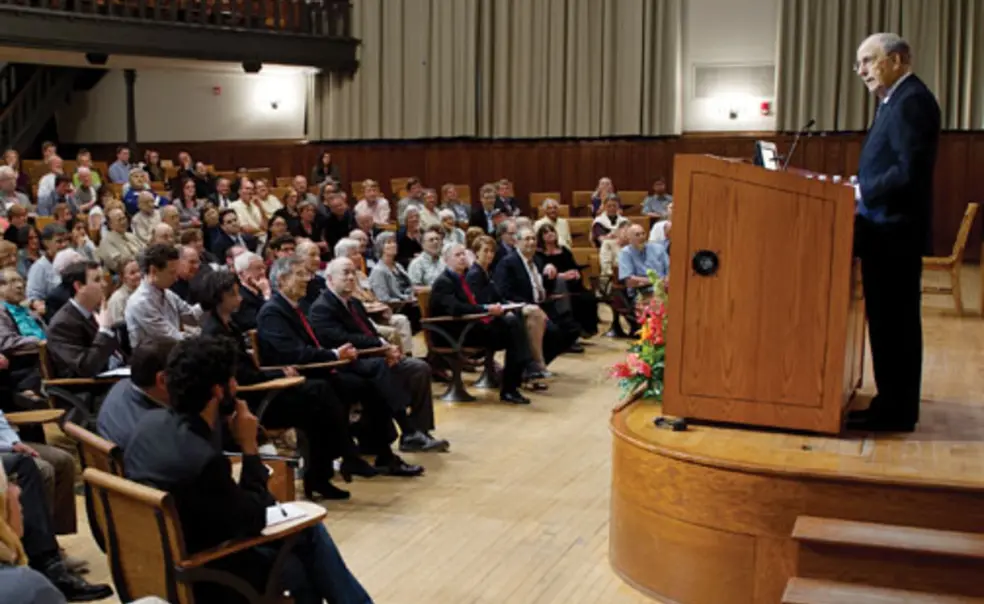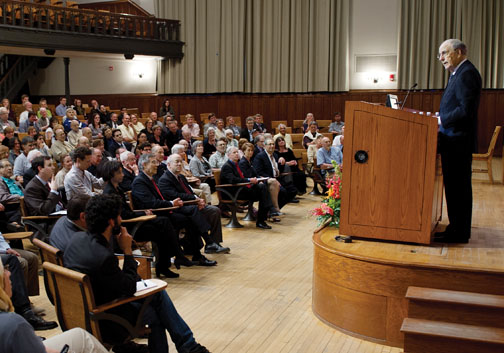An insider’s view of Mideast challenges
Opening the Woodrow Wilson School’s two-day colloquium on “Challenges to U.S. Policy in the Middle East” May 3, former Sen. George Mitchell, the former U.S. special envoy for Middle East peace, explained why Israel and the Palestinian Authority each need an agreement for a two-state solution – and soon. Israel faces growing risks from political isolation and simple demography, and from rockets that fly farther and more accurately; Palestinians live under occupation and watch as offers for a state continue to worsen, “as they have for the last 60 years,” he said. “The political pain leaders [on both sides] will have to endure to get an agreement is far less than the pain their people will endure if they don’t get an agreement,” he said. Almost 200 graduate alumni and guests returned for the conference, which featured panels and lectures on Iran, Syria, and the Arab Spring. Ryan Crocker *85, a career ambassador with the U.S. Foreign Service, cautioned against a shift toward “neo-isolationism” in a keynote talk. “Disengagement can have consequences as great and grave as getting in,” he said.













No responses yet